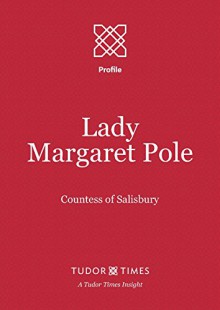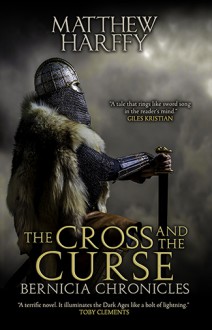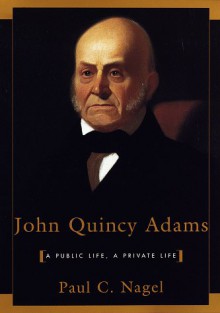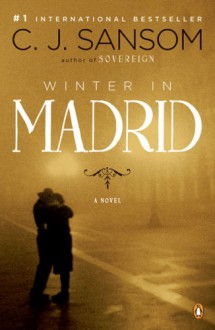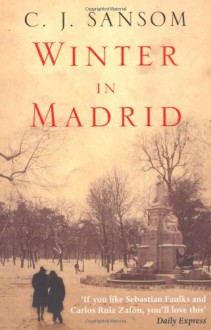
Disclaimer: English review below all those ugly German words.
Krieg gegen die eigenen Leute, in Zeiten wo es "neutral" nicht mehr gibt.
„Winter in Madrid“ war vielleicht nicht das Buch, das ich erwartet habe. Ich habe es mir gekauft, weil mir die Reihe um Matthew Shardlake von C.J. Sansom so gut gefallen hat und ich nach „Mein Katalonien“ von George Orwell und „Die Stimmen des Flusses“ von Jaume Cabré gesteigertes Interesse an Spanien zur Zeit der Revolution und der Franco Ära hatte. Vor diesen Büchern wusste ich so gut wie gar nichts über Spanien unter Franco... wir haben in Deutschland genug mit unserer eigenen Geschichte zu dieser Zeit zu tun, und doch, nichts in Europa oder in der Welt geht von allein, meist passiert an vielen Orten etwas ähnliches und dies ist besonders an dieser Stelle der Geschichte, nah genug um unser aller Leben noch immer zu beeinflussen, sehr deutlich.
Dies hier soll nun ein Spionageroman sein, der genau in der Zeit spielt, als der zweite Weltkrieg alles zu überschatten begann. Aber es ist kein Spionageroman im üblichen Sinne. Er arbeitet mit den Motiven doch viel mehr im Vordergrund stehen die Personen aus deren Sicht diese Geschichte erzählt wird.
Da ist zum einen Harry Brett, der nach Privatschule und Cambridge, eine kurze Episode im Krieg miterlebte und nach Dünnkirchen traumatisch gestört zurück bleibt. Dies ist nicht unbedingt das ideale Material für einen Spion. Aber das britische Außenministerium nimmt ihn dennoch in seinen Dienst.
Denn es geht um einen alten Schulkameraden, Sandy, der sich in zwielichtigen Geschäften mit dem Franco Regime befindet, und dem Harry auf die Schliche kommen soll. England fürchtet das Spanien sich den Deutschen anschließt und will versuchen dies zu verhindern.
Sandy, schon als Jugendlicher leichtfertig und moralisch zwielichtig könnte ein Faktor in diesem Spiel um Allianzen sein.
Sandy lebt zusammen mit Barbara, einer ehemaligen Krankenschwester des Roten Kreuz, die zuvor eine kurze Liebesbeziehung mit Bernie hatte, einem idealistischen, den kommunistischen Ideen der Zeit anhängenden, Mannes, der im Krieg gegen das Franco Regime verschollen ist und für tot erklärt wurde... und Bernie war ein Freund von Harry und ging mit ihm und Sandy zur gleichen Schule.
Aus der Sicht dieser vier Menschen bekommen wir nun das Innere Spaniens zu sehen und zu erleben, und das ist ein bisschen so, als wäre man selbst dort und würde es mit ihnen erleben und die Spionage verschwindet eigentlich in den Hintergrund.
Was mich sehr beeindruckt hat war der große Realismus, der die ganze Geschichte durchzieht. Wie die Unfreiheit des Faschismus sich langsam in die Psyche dieser Menschen einschleicht, wie die Furcht wächst hinter jeder Ecke einen Spion zu erwarten. Wie man Unrecht und Ungerechtigkeit sieht und doch kaum eine Möglichkeit hat etwas dagegen zu unternehmen, ohne sein eigenes Leben zu gefährden... und wie am Ende alle Illusionen und Träume erlöschen.
Zudem sind die vielen Fakten in das Buch sorgsam eingeflochten und kommen zum Teil erst sehr langsam zum Tragen. Dies ist keine reißerische, hektische und voller Aktionen geladene Story. Nein, sie ist viel realer und erinnerte mich darin stark an die vielen Augenzeugenberichte, die ich über Deutschland und die Verhältnisse hier gelesen habe.
Das Schlimme an solchen Systemen ist nämlich, das dies alles nicht über Nacht geschieht und man sich plötzlich in einer surrealen Schönen-Neuen-Welt befindet, sondern, das es immer noch das gleiche Land und die gleichen Nachbarn sind. Nur haben plötzliche manche dieser Nachbarn plötzlich Macht und können dir Schaden zu fügen, weil ihnen deinen Nase nicht passt. Aber, der Alltag ist der gleiche, aber es verschieben sich die Nuancen, so lange, bis nichts mehr ist, wie es zuvor war. Der normale Mensch, der Angst hat, kann nicht immer über seinen eigenen Tellerrand hinaussehen, bis es zu spät ist.
Interessant waren aber auch die Unterschiede zwischen dem deutschen und dem spanischen Faschismus. So ist es in Spanien insbesondere die Kirche, die nach der Zerschlagung der Kommunisten und Rebublikaner, stark in die Leben der normalen Menschen eingreift. Das entfernen von Kindern aus Familien, um sie umzuerziehen, die moralische Unterdrückung von Frauen und Sexualität, die spanischen Konzentrationslager, in denen die Kirche eine große Rolle spielte.
Nicht ganz so gut gefallen hat mit die teilweise etwas langatmige Erzählweise, dabei meine ich nicht den großen Teppich den C.J. Sansom hier ausbreitet, sondern das sich die Charaktere immer wieder in ähnlichen Monologen ergehen, das war etwas ermüdend. Hier und da hätte es sich ruhig etwas schneller entwickeln können... und auch das Ende war etwas, na ja, melodramatisch?
Was zurückbleibt ist große Desillusion, die Ideale, mögen sie noch so gut und rein sein, überleben eine solche Zeit nicht, denn ob in Spanien oder in Deutschland, die Gewinner am Ende waren die ohne jede Moral. Nein, die Weltgeschichte ist kein Märchen.
War against ones own people in times, where 'neutral' doesn't exist anymore:
"Winter in Madrid" wasn't the book I expected. I bought it, because I liked the series about 'Matthew Shardlake' a lot, and after reading 'Homage to Catalonia' by George Orwell and 'Die Stimmen des Flusses' by Jaume Cabré (there is a good book without an English translation), I had a huge interest learning more about Spain's revolution and francoist Spain. Before I read this books I nearly know nothing about this part of European history. We have in Germany enough to do, with our own part of history in this period of time. But nothing in Europe or the World happens on it's own. It is all related and clearly so, especially in this time of history, close enough to influence our lifes till now.
This book was supposedly a spy novel, playing in a time as World War II cast a shadow over the world. But it is not a spy novel in it's regular sense. It's working with this themes, but it is more a story about the people involved.
There is Harry Brett, Englishman, public school educated and a Cambridge fellow, who had a short but traumatizing encounter with war in Dunkirk. Not very good material for a spy but never the less, he gets hired as such by the foreign office.
Because he should spy on Sandy, one of his old schoolmates, who has some secret dealings with Franco. Harry should try to befriend him again and gather knowledge about this dealings. England is in fear that Spain may join there fellow fascist Germans in the war.
Sandy, all lose morals and as selfish, as he was as a child, lives together with Barbara, a former Red Cross Nurse. She had an affair with Bernie, who was an idealistic Communist, fighting against Franco. Now he is lost in battle and declared dead by the fascists. Bernie was also a friend of Harry back at school.
Through the eyes of this four people we get to see Spain and that's a little bit as if we would discover it on our own, and this is the point, where the spy story just walks into the background.
I was impressed by the huge amount of realism, which moves the whole story. How the bondage of Fascism creeps into the mind of those people, how the fear rises, how behind everyone and everything a spy might hide. How this people see unfairness and injustice and can't do nothing about it, because they have to fear for their own lives... and at the end all illusions and dreams are gone.
Facts and history are really nicely intertwined with the story, which takes its time to come to fruition. It is not a fast speed and high on action story. No, the story is to real to be like that. It remembered me a lot of eyewitness accounts of Germany and the time here, that I read.
Because what is really bad about living in such a system is, that you don't wake up one morning in a surreal "Brave"-New-World. It's still your home country, with the same people. But some of those people have now power over you and can harm you, if they don't like you. But the everyday life is still there, it shifts over time, and than, someday nothing is as it was before.A normal person, who is full of fear, can't always see beyond his own nose, and it might be to late if he does.
Interesting are also the nuances between Fascism in Germany and Spain. The Catholic Church in Spain gains much power, after the destruction of the Communists and Republicans, and interferes in normal peoples life. The taking away of children, to reeducate them, the moral oppression of woman and sexuality, Spanish concentration camps in which the church plays a mayor role... the list goes on.
The one thing I didn't like about this book was the sometimes repetitive nature of the story, by which I don't mean the huge carpet of time and space, C.J. Sansom has woven, but the characters engage over and over in monologues about their situation which wasn't necessary. Which was tiring, and could have left out to move the story a bit faster.
At the end it is all a great dissolution, the ideals, how ever good they were, don't survive such times and regimes. It doesn't matter if it is Spain or Germany, the only people who gain from such times, are the ones without morals.
No, world history isn't a fairy tale.


 Log in with Facebook
Log in with Facebook 


